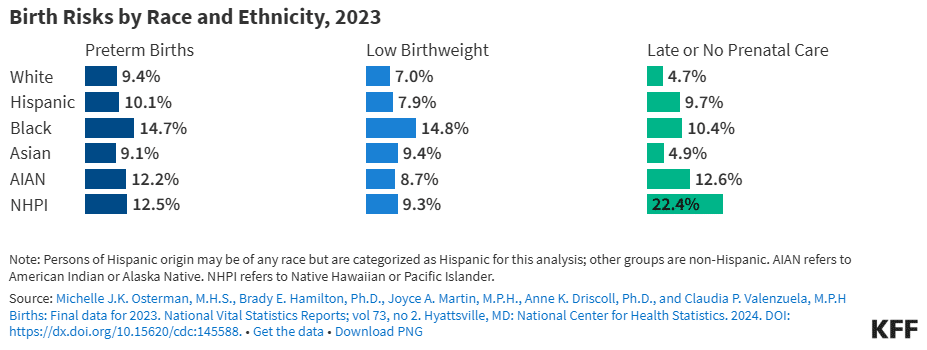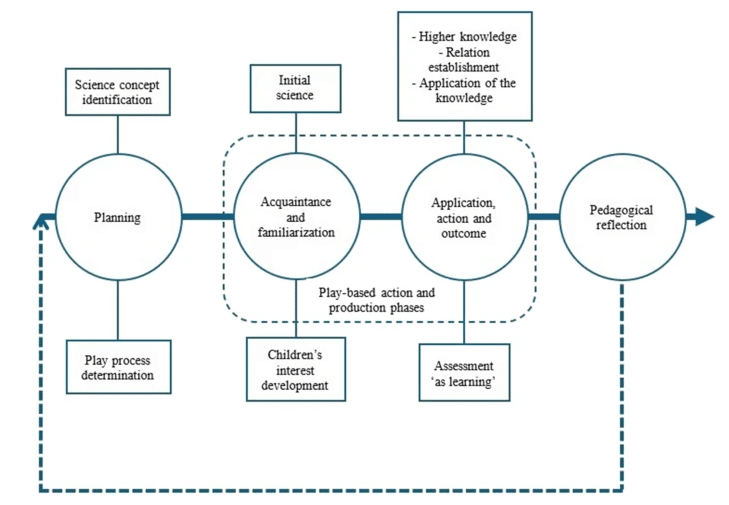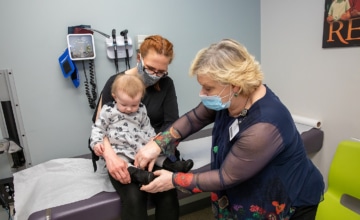The data shows Medicaid remains a critical safety net, covering over one in five Americans, especially in states with higher poverty rates or expanded eligibility. Its wide state-by-state variation highlights ongoing disparities in access to health care, which can directly affect health outcomes for low-income families and children.
Samantha's take:
Medicaid covers over half of all US births and nearly half of all children under 18, serving as the primary source of health care during pregnancy, birth, and early childhood for millions of families.
Yet instead of strengthening this support, recent policies are eroding it. States are sharing personal Medicaid data with immigration enforcement and federal budget cuts are stripping away programs that help families through pregnancy and early parenting. These choices jeopardize babies during their most vulnerable developmental period.
Even before the cuts, families faced setbacks. Nearly 5 million children lost access to Medicaid or the Children's Health Insurance Program (CHIP) in the past year, mostly due to paperwork issues, not eligibility.
Medicaid remains one of our strongest tools for supporting healthy pregnancies, safe births, and strong starts. Investing early brings lifelong benefits for children and lasting value for our society.





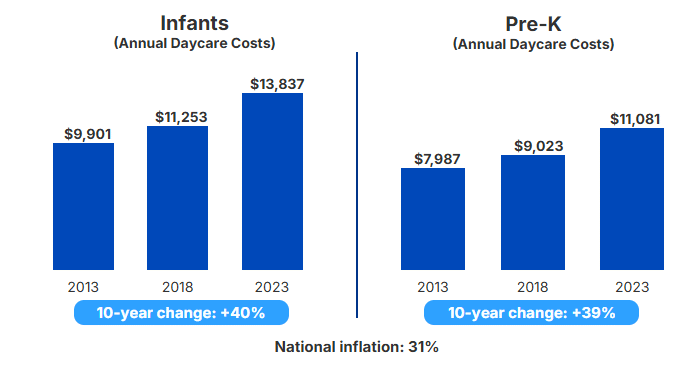

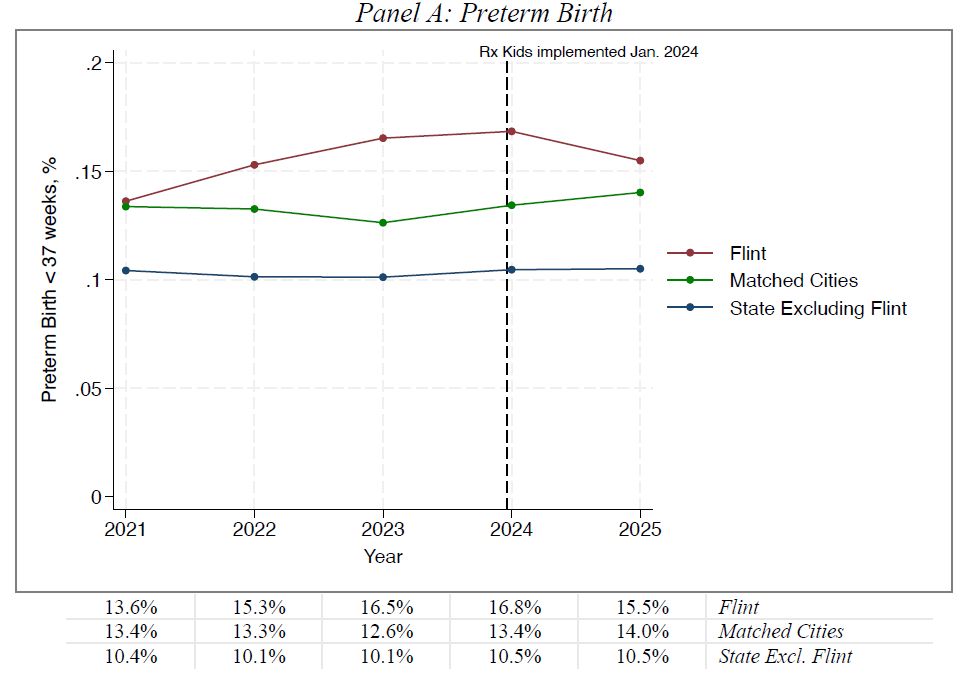

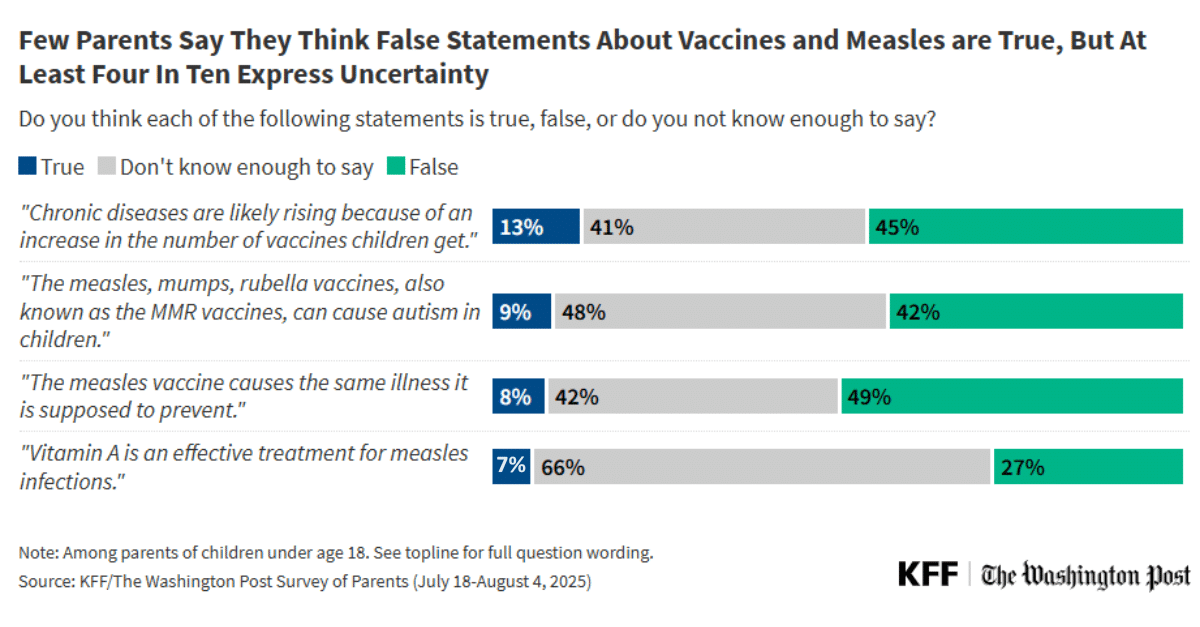

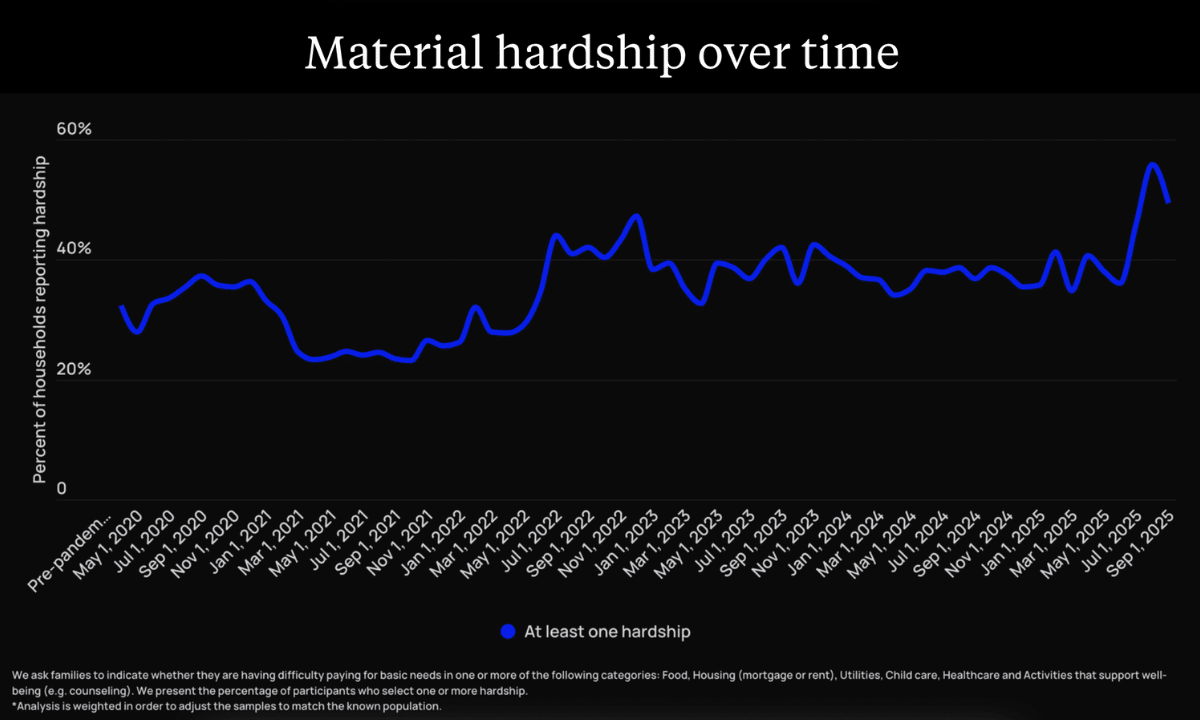 Phil’s take:
I am deeply concerned by the latest survey findings that show nearly half of families with young children are struggling to meet one or more basic needs. These data reflect more than just numbers; they signal widespread stress on the environments in which young children grow and develop.
Working on and with the RAPID Survey Project has taught me how critical it is to elevate the voices of parents and caregivers and to generate data that are timely, actionable and grounded in lived experience. This survey underscores that many families are not simply experiencing isolated setbacks, but systemic pressures. They are struggling to pay for housing, keep utilities on, find child care, obtain health care and secure enough food. When these essentials are in jeopardy, the
Phil’s take:
I am deeply concerned by the latest survey findings that show nearly half of families with young children are struggling to meet one or more basic needs. These data reflect more than just numbers; they signal widespread stress on the environments in which young children grow and develop.
Working on and with the RAPID Survey Project has taught me how critical it is to elevate the voices of parents and caregivers and to generate data that are timely, actionable and grounded in lived experience. This survey underscores that many families are not simply experiencing isolated setbacks, but systemic pressures. They are struggling to pay for housing, keep utilities on, find child care, obtain health care and secure enough food. When these essentials are in jeopardy, the 
 What the research says:
This study examined whether recorded maternal speech could influence brain development in very preterm infants cared for in the neonatal intensive care unit (NICU). Researchers played recordings of mothers reading aloud to their babies for several hours each night over multiple weeks. MRI scans taken near term-equivalent age showed that infants exposed to these recordings had more mature development in the left arcuate fasciculus, a brain pathway critical for speech and language.
The findings suggest that consistent exposure to human speech, even in the earliest stages of life, may help strengthen neural connections that support later language development.
Mike’s take:
We know that nurturing relationships and low parental stress are essential to healthy child development,
What the research says:
This study examined whether recorded maternal speech could influence brain development in very preterm infants cared for in the neonatal intensive care unit (NICU). Researchers played recordings of mothers reading aloud to their babies for several hours each night over multiple weeks. MRI scans taken near term-equivalent age showed that infants exposed to these recordings had more mature development in the left arcuate fasciculus, a brain pathway critical for speech and language.
The findings suggest that consistent exposure to human speech, even in the earliest stages of life, may help strengthen neural connections that support later language development.
Mike’s take:
We know that nurturing relationships and low parental stress are essential to healthy child development, 
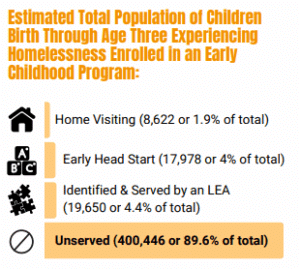 A recent Seattle Times article focuses on the School House Connection report,
A recent Seattle Times article focuses on the School House Connection report, 
